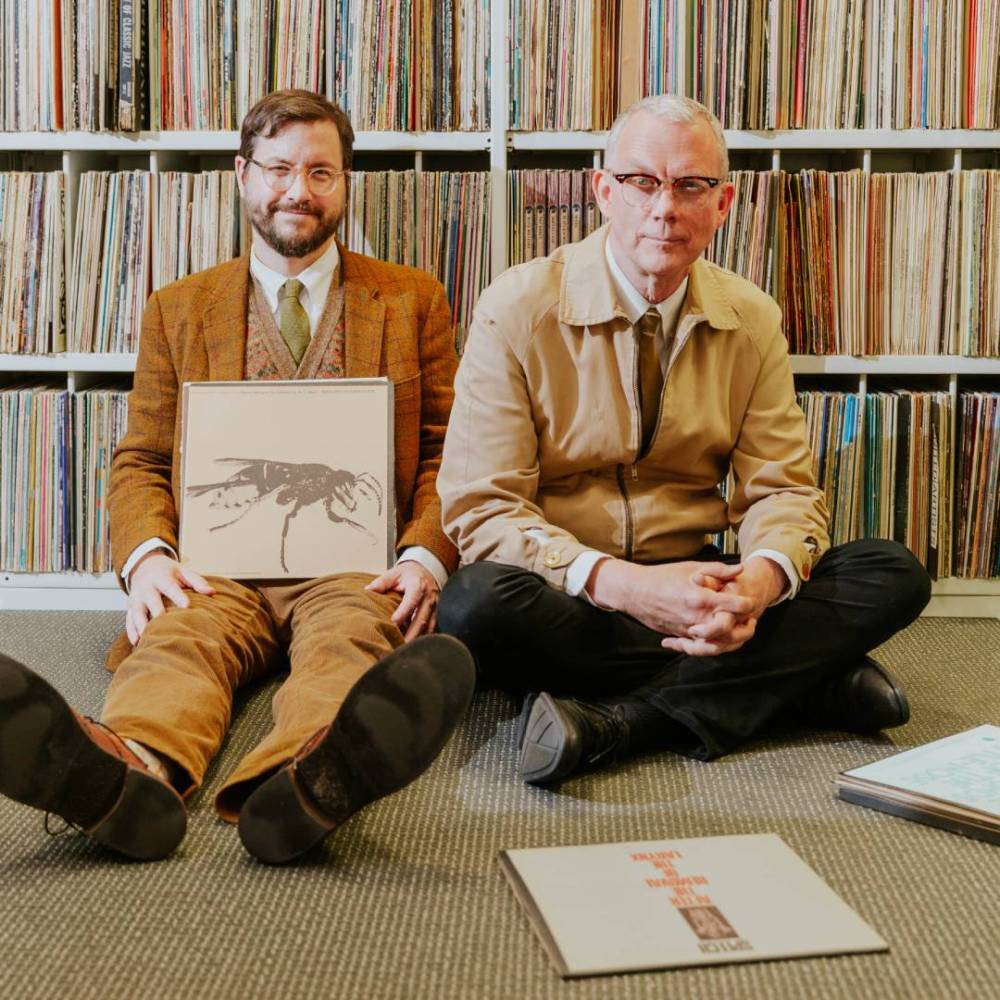Image via Farrah Skeiky
Michael McKinney understands the cultural importance of Kreayshawn’s “Gucci Gucci.”
If you look through Matmos’s discography, it won’t be long before you find something a bit unusual. The Baltimore experimental-music duo, a.k.a. Drew Daniel and M.C. Schmidt, have a long history with music that’s provocative in form and sound alike, with conceits that feel a bit like dares or inside jokes. What happens if you ask ninety-nine musicians to play anything they want at 99 BPM? What if you use nothing but a washing machine? What about plastic? Throughout their career, Matmos have used the album as a way to dive deep into one particular idea. The specifics change from record to record, and from performance to performance, but that deep-dive ethos acts as a taut throughline through their work.
If this sounds conceptual to a fault, you might be right. Their music yelps, squeals, and squawks; it pops, fizzles, and runs into the red; it calls attention to itself only to recede into the background before mutating yet again. The group freely admits that their music isn’t for everyone, but they maintain that the project has populist underpinnings. Their work shares DNA with hip-hop turntablists of the ‘80s, sound artists of the ‘50s, and a million corners of the contemporary avant-garde; if it’s disorienting, that’s because it’s pulling from so many timelines at once. If anything, Matmos’s work carries a kind of radical humility: Why, their discography repeatedly asks, can’t this be music?
This should hardly come as a surprise. Daniel found his way towards music via four-track collagery, and, as a high-schooler, Schmidt played synthesizer in a band that valorized Throbbing Gristle and Pere Ubu. Their music has always been, in one form or another, about collagery. The duo’s latest record, Return to Archive, is among their most daring why-nots yet. Here, they look to Smithsonian Folkways Recordings, a 75-year-old label that was established in order to catalog no less than every sound in the world. That kind of scope necessitates a bit of zooming in, so Daniel and Schmidt opted to focus upon the record label’s nature recordings and their educational and scientific work. The result is remarkable and thoroughly uncanny: A car-crash of frogs and field recordings, a twisting of unidentifiable voices, surgeries, and old-school recording equipment. Return to Archive is the sound of Matmos twisting up “non-musical recordings” until they sound entirely new, melting down vinyl records and turning voice boxes inside out.
In mid-November, we got a chance to catch up with the experimental-music duo, going wide and weird. We touched on the politics of noise music, Ronald Reagan deep-fakes, making clubs go whisper-quiet, the sound of haircuts, and lots more.
(This interview has been condensed and lightly edited for clarity.)

